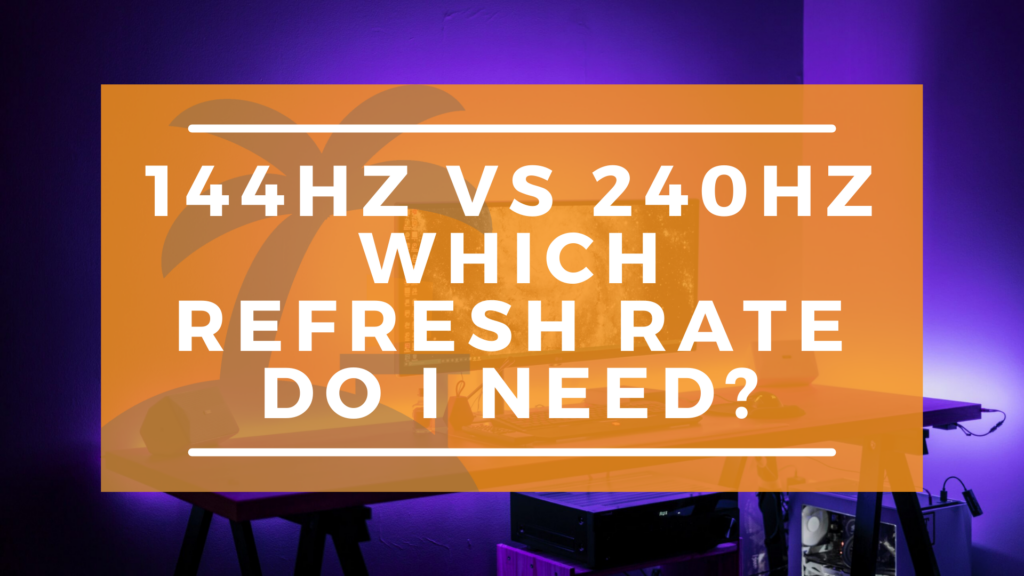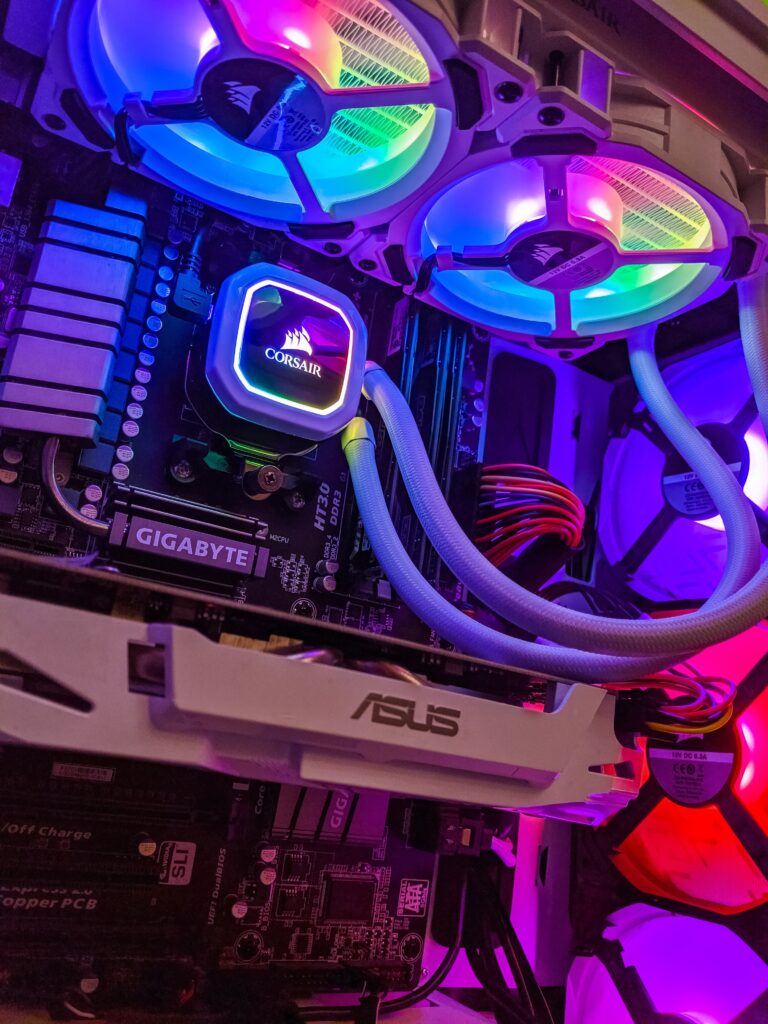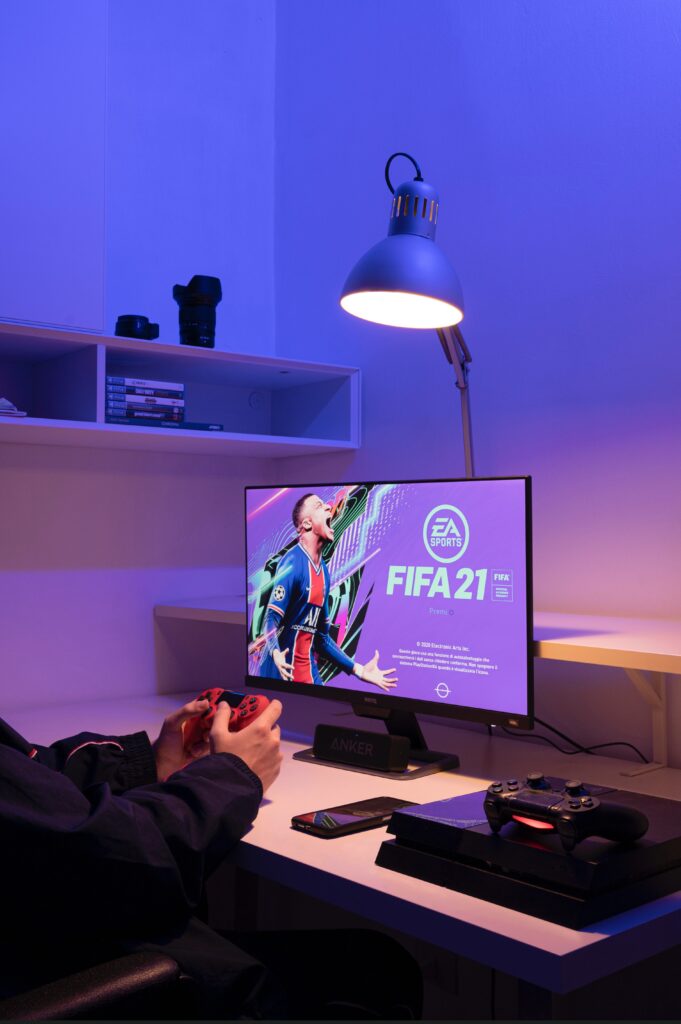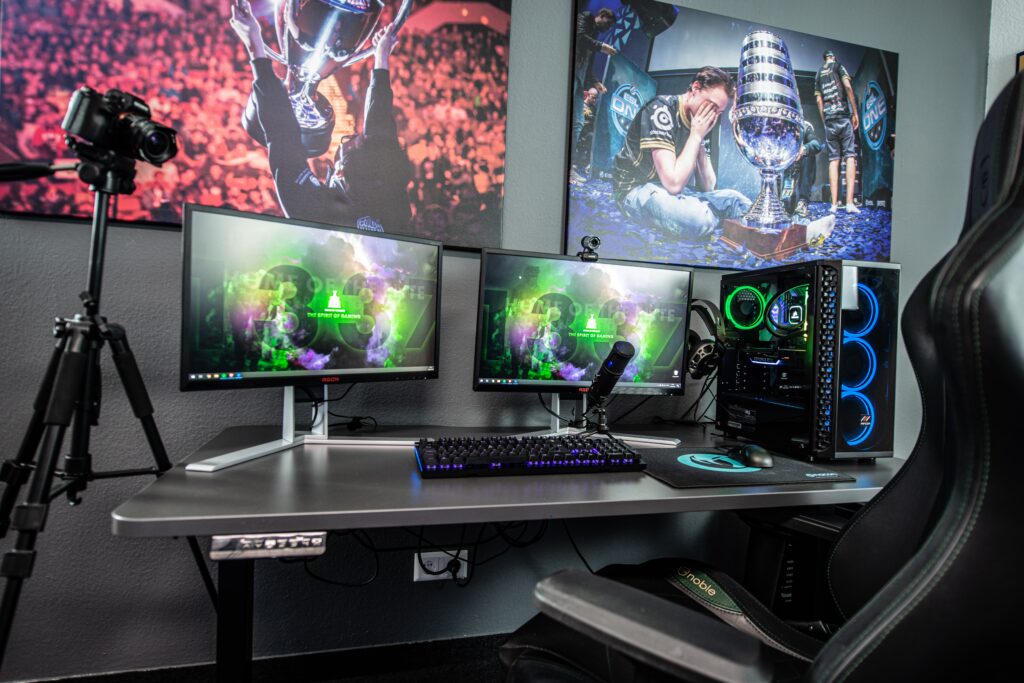
If you are a gamer looking at buying a new computer setup, there are many different factors to consider, one of the most important being the refresh rate. There are a few different refresh rates to choose from depending on what model of monitor you choose and as games continue to evolve, it can be tricky to figure out exactly what you need to optimize your gaming experience. But we’re here to let you in on a few tricks of the trade when it comes to choosing the perfect refresh rate.
For starters, when we talk about the refresh rate of a monitor, we are really referring to max number of times per second that the image showing on the screen will be refreshed. This is measured in hertz, or Hz for short. As you can imagine, the higher the refresh rate, the smoother picture you will experience as there is less time between the displayed image being updated on the screen. Simply put, a higher refresh rate means more information to your eyes in the same amount of time for a smoother screen display.
Typically, your standard computer monitor is 60Hz. This is pretty common for everyday use and even some gaming experiences. However, most experienced gamers are playing on monitors with refresh rates over twice that fast, usually 144Hz or even 240Hz. Here is everything you need to know before you settle on a refresh rate for yourself.
What is Hz (Hertz)?
 The refresh rate will always be measured in hertz, so it’s good to know what they do and how they work with your frames per second. Named originally after Heinrich Hertz, a hertz is a unit of frequency that measures the number of cycles per second. When this is applied to our monitors, it e4ssentially means that 1 hertz = 1 frame per second. Therefore, the higher the Hz the more frames your monitor can display per second of a periodic phenomenon.
The refresh rate will always be measured in hertz, so it’s good to know what they do and how they work with your frames per second. Named originally after Heinrich Hertz, a hertz is a unit of frequency that measures the number of cycles per second. When this is applied to our monitors, it e4ssentially means that 1 hertz = 1 frame per second. Therefore, the higher the Hz the more frames your monitor can display per second of a periodic phenomenon.
You may be wondering, how many hz do you need for gaming? Keep in mind that the amount of Hz you decide on will depend on your source. In order for your monitor to fully register your frames, you want to aim to have either the same or more Hz than frames per second. This will help you prevent losing frames in rendering, but there are a few more reasons this is really important.
Why is Hz Important for gaming?
Hz is important for a few different reasons. the higher the Hz is the smoother and clearer display picture you will have and less blurring overall. Blurring occurs as a result of how our brains process the set of individual frames of a monitor display. Our brains blur these series of frames together in order to create one sensible moving picture, although some details are lost along the way (1).
When you increase your Hz this decreases the blur by giving our brains more information than before to process, reducing the perceived blur. This allows gamers to achieve smoother aiming and tracking, especially in first person shooter games and other fast actions games. Overall game play is enhanced and provides an in game advantage over other players with slower Hz and frames per second.
However, be aware that many people experience motion sickness and headaches when playing on higher Hz for the first time. It will take time for your eyes to adjust the extra information being processed, and that is not necessarily the most enjoyable gaming experience for some individuals.
 What is Screen Tearing?
What is Screen Tearing?
Now, there is a reason your monitor’s refresh rate and GPU’s frame rate must be synchronized. If they are not, then you are at risk of screen tearing, every gamer’s nightmare. This tends to happen when a computer’s video card is trying to put out frames at a much higher than the refresh rate of the monitor.
When this happens, you will usually see a split horizontal line through your screen as your monitor struggles to produce a quick enough picture. In other words, your monitor gets extra glitchy and can have a quick negative impact on your gaming experience.
144hz vs 240hz: What do I need for gaming?
240hz monitors seems like all the hype these days as more and more professional gamers are making the switch. But do you need 240hz for gaming? In short, 240Hz makes fast paced and highly interacting gaming incredibly smooth and fluid. However, keep in mind that if you are making the jump from 60Hz to 240Hz you will notice a drastic change in the picture than you would from 144Hz to 240Hz.
In fact, many experienced gamers report they notice hardly any difference in the picture, or advantage over their opponents when switching from 144Hz to 240Hz. 240Hz won’t give you any more advantage over other players, but it will make your game a heck of a lot more immersive.
Keep in mind that if you aren’t getting over 144 frames per second in the video games you are playing, there is really no reason to upgrade to a 240Hz monitor. Unless you are looking to upgrade your PC as well, or simply to future-proof your monitor, 144Hz should be the perfect refresh rate for experienced and casual gamers alike.
 144Hz vs 240Hz: How do I look for the right monitor?
144Hz vs 240Hz: How do I look for the right monitor?
When you are searching for the right gaming monitor, there are of course a few different factors to consider including screen size, display, panel type, resolution, and much more. When considering the refresh rate of a monitor, remember that a 240Hz refresh rate is only available on some 1080p and 1440p monitors. 144Hz gaming monitors, on the other hand, do have the ability to come with 4k resolution.
The bottom line is, if you are an avid or professional gamer, chances are your willing to take any improvement to up your game play experience, in which case a 240Hz monitor is worth the upgrade.
However, if you are a casual gamer still looking for that premium gaming experience, we recommend sticking to the 144Hz, especially considering how taxing gaming at 240 frames per second can be.